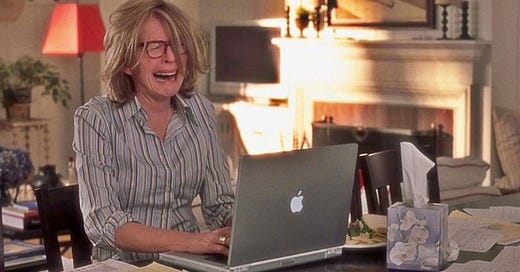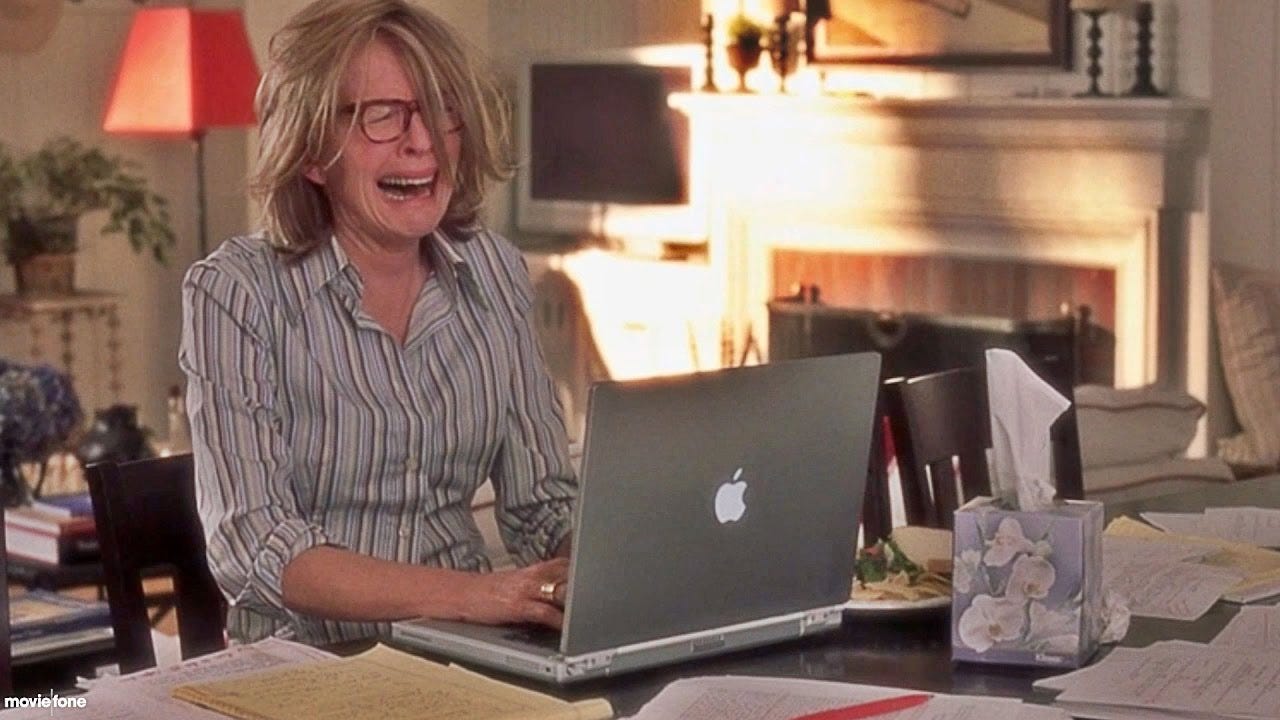This week I finally began editing my novel.
If you’re thinking, “Wait, isn’t this a comms newsletter?!”—yes! It is! And like many communicators I know, I also write for myself. In this case, I’m finally writing the novel I’ve been talking about for almost five years.
Last fall, fueled by the terror that everyone would judge me for quitting my lucrative tech job with nothing to show for it, I wrote 2,500 words a day, four days a week, careening toward the 80,000 words recommended for most contemporary novels and landing just north of 60,000 before Christmas 2023.
Finishing a draft felt like an extraordinary accomplishment, and I let myself languish in the high of writing "The End” far longer than I meant to. This was partly because I was also getting my comms consultancy off the ground—a first draft of another kind. But mostly I put off returning to the novel because I was a big old scaredy-cat, afraid to crack back into what I knew was a messy, occasionally sparkling, often-shitty baby giraffe of a draft that needed a whole lot of love to come fully to life.
Writing a novel is really, really hard. It is hard, I am realizing, in the way that entrepreneurship is hard. You can go farther than you’ve ever gone before, farther than anyone else has ever gone before, and still fail. You can experience the highest highs and lowest lows you’ve ever felt, and there is no guarantee that anyone will actually buy the thing.
To bastardize a quote from
’s recent Pirate Wires piece, drafting a novel is 80% of the work. The other 80% is editing. In my pettier moments, it feels completely absurd that I could spend two months working almost exclusively on something that still needs so much fucking work to become remotely readable. In other moments, I’m relieved to know countless others feel the same way as they found startups and generally try to take their own ideas from zero to one. If you’re not embarrassed of your first draft, you sent it to beta readers too late, or something.So in honor of embarking on the second 80% of the work, here’s a sneak peek at my first chapter:
At the time of their scheduled performance review, Aggie’s boss Theodora Grant, the editor-in-chief of online women’s site Coven, was nowhere to be found. She was not in her office working atop her grand glass-top desk. Nor was she in the kitchen adding an additional dollop of creamer to her coffee, turning it from the color she insisted she liked (wet sand) to the color she actually liked (very dry sand). She was not even sneaking a languorous vape out the bathroom window while a chatty murder podcast played through a solitary ear bud.
Any failure to pin down Theodora’s location was a definitional failure on Aggie’s part, given that as of today Aggie had been her assistant for one calendar year. But Aggie was grateful for the additional few moments to finalize that month’s editor’s note. At a time like this, with Donald Trump starting to look like a real contender for the Republican nomination, Aggie sometimes had trouble threading the needle between the site’s “zesty” tone and the darkening political reality. What started as a dream election cycle for many, Aggie began, with the near-guaranteed nomination of Hillary Clinton to the Democratic presidency, has turned into a nightmare with the continued front-page antics of Republican candidate Donald Trump. But at Coven, elevating the voices of women is OUR fight song—which is why you can find a photo spread of Clinton’s girlboss staffers at this link! Aggie deleted the exclamation point and replaced it with a period. After a year Theodora’s voice had become her own, and Theodora was the type of feminist who culled all warmth and doubt from the written word, who murdered exclamation points and throat-clearing darlings like, “I just wanted to check in about…”
Struggling post-college without an infrastructure of achievement to guide her, Aggie had defaulted to helping others reach their own dreams instead. For her first four years after college, she’d coached the offspring of wealthy Upper West Siders and Upper East Siders and Brooklyn Heights residents on how to navigate college admissions now that acceptance rates were at an all-time low, with dwindling tolerance for middling non-donor legacies. Aggie had come to Coven after realizing, during a particular vicious bout of hangover anxiety, that she was only a year away from getting kicked off her mothers’ health insurance and, as a freelance college essay consultant, had no imminent prospects for employer-covered healthcare.
Part of Coven’s appeal was that it was the only place that offered her a job. The other part was the promise that after a year she could start bylining pieces for the site, thereby killing two birds (having the ability to get hit by a bus without going bankrupt, and building a writing portfolio) with one stone—the upside of a year spent fetching dry cleaning and scheduling and rescheduling lunches with other editors of other women’s sites.
Aggie knew how the world worked; she wasn’t above paying her dues.
Aggie’s computer was framed with sticky notes covered with ideas for her first stories. An exposé on the hidden costs of pet insurance, an idea she got while slurping picklebacks with a veterinarian on Grand Street. An interview with the founder of an all-women’s coworking space that had recently been sued for gender-based discrimination. And her biggest reach, really just an excuse for an all-expenses-paid vacation, a deep-dive into the resurgence of Catskill resort towns and the private-equity-backed forces financing the vacuuming up of once-family-owned businesses.
Rule of threes; one of these was bound to stick with Theodora.
She was ready.
Wasn’t she?





Congratulations -- this is so exciting! Keep at it!